Cat meow: what does it want to communicate to us?
The meow is the cry of the cat and is part of the vocalizations of the felines, that is all the ways that these animals use to express themselves. The purrs, hisses, moans and other signals that cats use to make themselves understood are also included in the verses. Normally, in nature cats do not meow so often, making themselves understood through body language, especially by the movement of the eyes , ears, legs and tail. In contact with man, however, the meowing of these animals is used more frequently ... perhaps because we are not good interpreters?
So, if we link the purring directly to the well-being and relaxation of the cat, the murmur when the cat feels threatened or the tail hidden between the legs to fear, what lies behind the meowing of our feline friends? It is good to say that not all cats meow the same way. Some emit this verse very rarely, while others more frequently and this may also depend on the race. For example, breeds such as the Siamese see cats that are very talkative and love to hear the sound of their voice. In general, however, meows can express more than one meaning and here's what they are.
See also
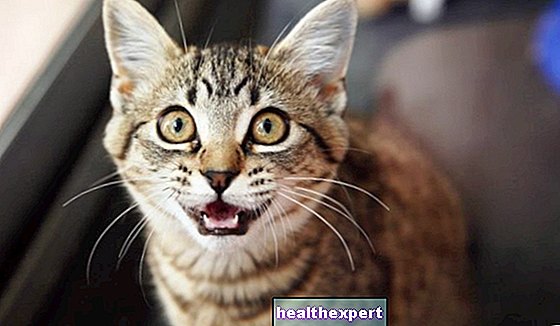

The cat meow to say hello
As already mentioned, the meow is the cry of the cat but it is not the only way it uses to communicate. For example, a form of greeting the cats is to lean on our legs, rubbing, and raising the tail like a question mark. To greet us, however, with the sound of his voice he chooses a single meow, especially as an answer if we are It can also welcome us by first emitting a vocalization similar to a purr and then meowing.
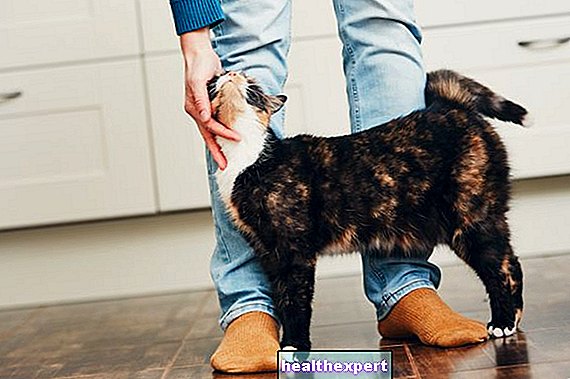
The cat's meow to communicate that it is hungry
Very often the cat's meow is traced back to hunger. In reality, this is not always the case. Those who meow to express their desire to eat are mainly newborn cats who, just like our babies, attract the attention of the mother because they want to be fed.
In the adult cat, a prolonged meow can be traced back to hunger, but you have to be careful when to "satisfy" it or not. In fact, if every time your cat meows you offer him food, he may use his verse whenever he wants to eat, even when he's already fed enough.
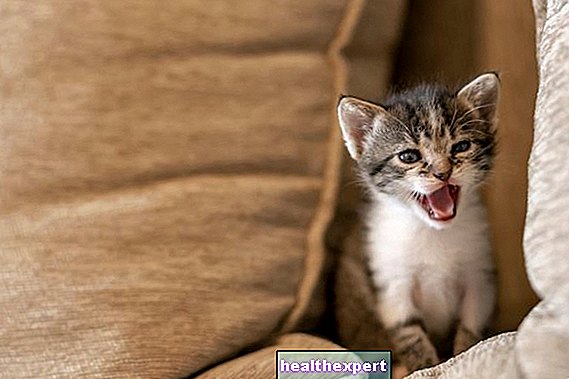
The meow to get attention
When the cat wants to be taken into consideration, he makes it clear. Also taking into account the various breeds, normally, the meowing to attract attention is prolonged and for this reason it is distinguished from that of the "greeting". Maybe your cat has tried to distract your attention from the activity you were doing by interposing between you and the computer or book you were concentrating on, touching yourself with your paws or rubbing against your legs or arms, waiting for some consideration. If these techniques have not worked, then you can resort to meowing. If not. no need, such as a dirty litter box or urgent need for food, you have to try to pretend nothing is happening, just like when it asks us for something to eat between meals. Otherwise, the cat could meow whenever it is not in the center of the attention or bored.
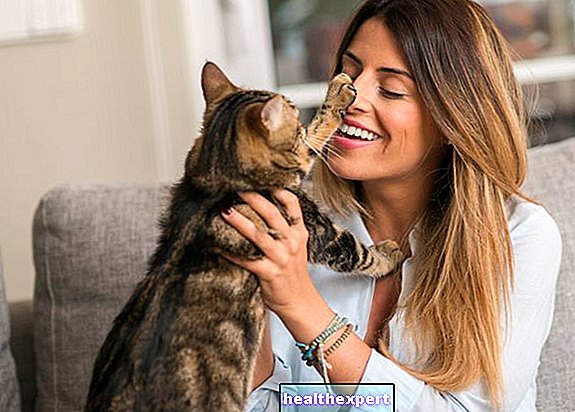
The meow as a "cry of love"
During the period of heat for the cats or simply "of love" for the males, the feline meow turns into a real and very prolonged lament. It may also happen that recently sterilized females or in old age behave like their fertile counterparts, calling in a plaintive way to their partner. A male cat will do the same if it senses a female in heat nearby.
The cat's meow to communicate discomfort
Finally, in some cases the meow becomes a way for the cat to communicate his discomfort, which can be of various kinds.
- Dirty litter: its displaced or dirty litter creates in the cat, a habitual and clean animal, a discomfort for which it meows. These meows are the same as those that cats emit, in general, to get attention.
- Stress: the cat may meow when it perceives a stressful situation. The most frequent are the movements from home, such as travel or removals, which bring the cat a "forced" change of places and habits.
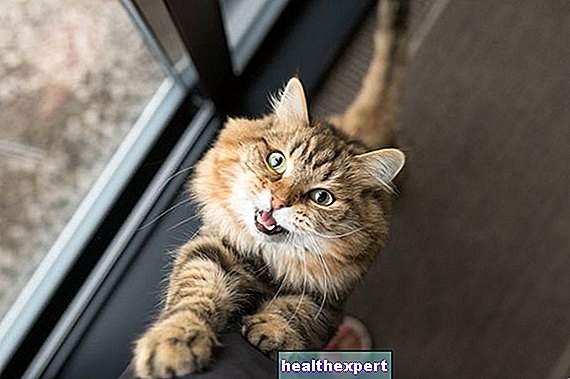
- Seniority: Both cats and older dogs can feel disoriented over the years. In the case of felines, they manifest this discomfort by meowing more often. It almost always happens during the night, when the cat starts complaining through the meow because he is disoriented. The solution to this problem is to leave a light on at least in one room of the house.
- Disease: The meows that cats reproduce in the event of illness, pain or health problems are usually deeper and more guttural than normal ones to attract attention. In a precarious health situation or when it is not well, the cat not only meows but exhibits some changes in behavior and other symptoms, such as lethargy or loss of appetite, just like dogs.
- Fear: Since when the cat, or any other animal, is sick it is in a situation over which it has no control, the same occurs when it feels fear, a sensation for which it emits similar meows. They are long and particularly deep verses, which seem to come from the throat. They are often combined with other vocalizations, such as that of the breath.